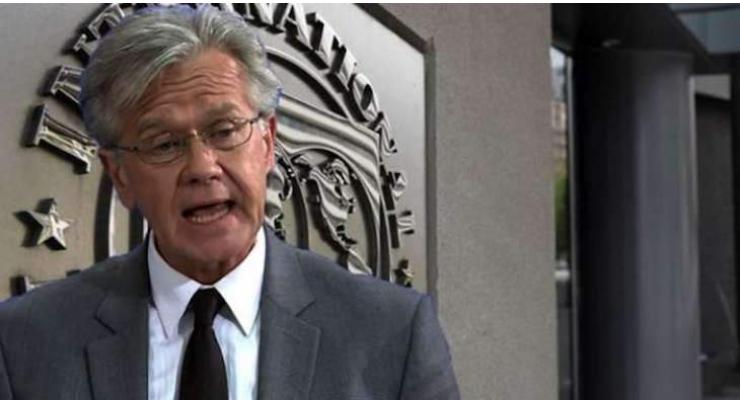
IMF Urges US, China To Resolve Bilateral Trade Dispute - Spokesperson
Faizan Hashmi Published December 13, 2019 | 12:01 AM

The International Monetary Fund (IMF) urges the United States and China to resolve their bilateral trade dispute and encourages any intermediate steps to deescalate tensions, IMF spokesperson Gerry Rice said during a press briefing on Thursday
"We are urging a resolution and are hoping for progress," Rice told reporters ahead of a December 15 deadline the United States has set for imposing additional tariffs on $300 billion of Chinese imports if a trade agreement is not reached.
Earlier in the day, US President Donald Trump said in a statement the United States and China are on the verge of reaching a trade agreement.
Rice said the IMF is taking a wait-and-see stance as to the outcome of the US-China trade negotiations, but is encouraging any actions to reduce current trade tensions and especially if they lead to reaching a lasting deal.
"We would welcome any steps to deescalate trade tensions, particularly if they can provide comprehensive and lasting agreement," Rice said.
On Sunday, China's General Administration of Customs revealed that US-China trade decreased by 15.2 percent in the January-November 2019 period as compared to the same period last year, and stands at $494.5 billion.
The United States and China, the world's two leading economies, have been engaged in a trade war in the past year by imposing tit-for-tat tariffs worth hundreds of billions of Dollars on the other's imports.
If Washington moves to impose additional tariffs on $300 billion worth of Chinese imports past the December 15 deadline, the move would mean all of China's annual exports to the United States would be subject to steep tariffs when entering the US market.
Related Topics
Recent Stories

Five killed, 1,351 injured in Punjab road accidents

President urges Australian companies to invest in Pakistan

Nazeer Tarar introduces (The Tax Law Amendment Bill 2024)

Spain PM under pressure as wife faces graft probe

UUVAS arranges seminar to commemorate Allama Iqbal

Vaccines save at least 154 million lives in 50 years: WHO

Young officers visit PID for briefing on govt principal public relations agency

RUDA takes stern action against pyrolysis plants, dismantles five

U.S. Secretary of State Blinken arrives in Shanghai

PM Shehbaz asked to extend hand to Imran Khan, India

BISE Hyderabad to announce HSC-Il result exams on April 25

ARI calls for comprehensive measures to curb tobacco use
More Stories From World
-

Spain PM under pressure as wife faces graft probe
3 minutes ago -

U.S. Secretary of State Blinken arrives in Shanghai
11 minutes ago -

N. Macedonia starts elections that could decide stalled EU talks
45 minutes ago -
Haaland ruled out of Man City's crucial trip to Brighton
45 minutes ago -

Four dead as floods wreak havoc in Kenyan capital
45 minutes ago -
Thousands in heatwave-hit Bangladesh pray for rain
1 hour ago
-
EU urges probe into reported mass graves at Gaza hospitals
1 hour ago -
Gucci owner Kering's shares sink after profit warning
1 hour ago -
Extreme heat scorches Southeast Asia, bringing school closures and warnings
2 hours ago -
Ambassador Hashmi greets China on Space Day
2 hours ago -
Mass cancellations loom despite French air union calling off strike
2 hours ago -
Record-breaking London stocks spearhead global rally
2 hours ago



